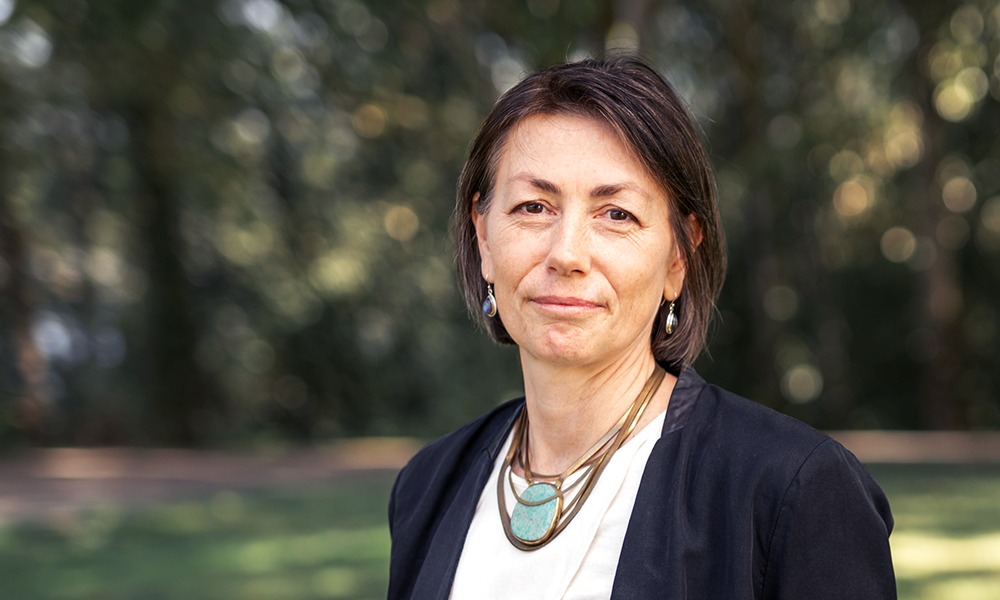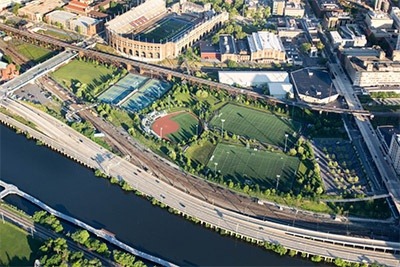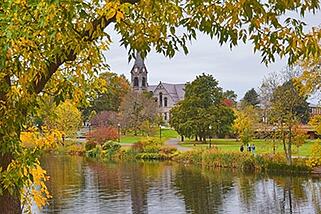This summer, Haley & Aldrich climate change resilience consultant Dr. Daniele Spirandelli traveled to Vietnam with the Pacific Partnership 2023, a U.S. Navy–helmed humanitarian aid and disaster relief mission. As one of only two civilian subject-matter experts involved in a program organized by the Oregon National Guard, Daniele traded insights on sea level rise and coastal management with researchers at Mien Trung University of Civil Engineering.
The Pacific Partnership, founded after the devastating 2004 Indian Ocean earthquake and tsunami, brings representatives from the U.S. military, nongovernmental organizations, and academia to the Indo-Pacific region to work in partnership with local officials and organizations. This year, according to the U.S. Department of Defense, nearly 1,500 people from seven nations took part.
Talk about your role with the Pacific Partnership this year.
In my career, I’ve researched sea level rise, coastal erosion, and coastal management. Vietnam has a very long coastline, and as part of the knowledge exchange I participated in, the Vietnamese representatives had specifically requested expertise around coastal management. That piqued my interest to learn about their challenges and share what I’ve learned.
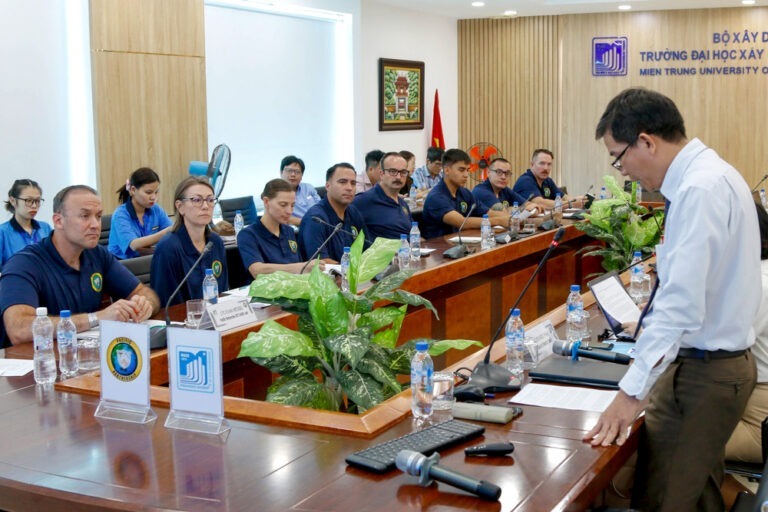
I presented a research paper that I developed with colleagues from the University of Hawaii. We assessed the effectiveness of a coastal zone management program meant to protect beaches and coastal resources. We looked at historical data and essentially found that protective hardening implemented, despite the program, increased the rate of erosion through a process called flanking, where areas of beach adjacent to hard structures, like seawalls, erode faster than they would otherwise.
Why was your audience concerned about the topic of coastal erosion?
They were very interested because they’re having similar challenges while they try to figure out how to protect homes impacted by waves and storm events, which are getting worse with sea-level rise. As a follow-up, I’ve been in touch with Tu Ngoc Dam Le, a faculty member in architecture and urban planning at Mien Trung University, to talk about a research project around those coastal erosion challenges and coastal zone management, focusing on a case study in Tuy Hòa City in Vietnam.
We were staying in Tuy Hòa, where the university is, and we learned about the area’s coastal management challenges from the local Department of Agriculture and Resource Development, which is the agency responsible for protecting the coastline. They’re very concerned about areas of rapid erosion impacting houses and infrastructure right along the coast.
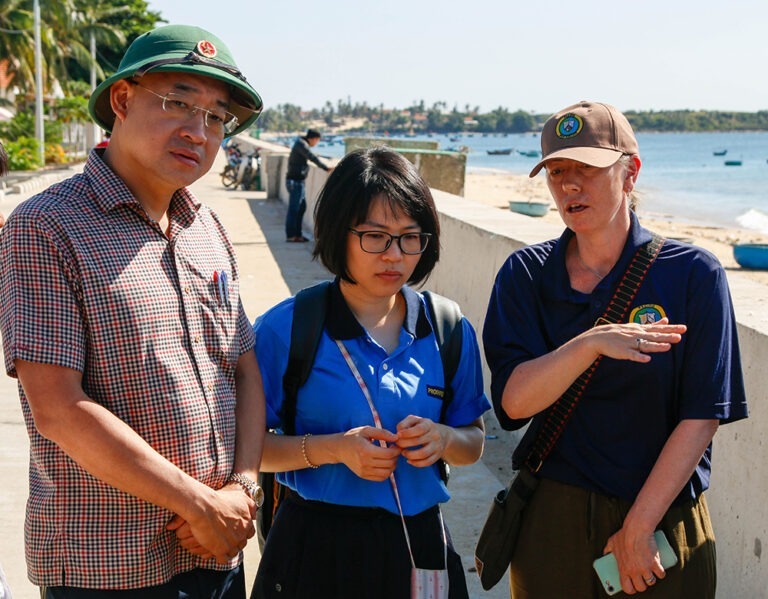
They’re already losing beaches, which are critical for small fisheries and the livelihood of many in the local communities. They also depend on the beaches for recreation. Early in the morning, at around 5 a.m. — because it would get so hot later in the day — it seemed like the entire town would be down at the beach to exercise or cool off in the water. So much of life revolved around the beach.
How did insights from this trip connect to your consulting work?
One takeaway I had was related to partnership. This was my first time involved with the Pacific Partnership, and I was impressed at how the Department of Defense has taken great care to build lasting partnerships with local agencies and communities. It’s clear that we need those kinds of partnerships to build real resilience — it’s not just about one building project or one exchange of supplies. It really is about learning from one another and how other cultures are approaching the challenges of climate change, wildfire management, or coastal management. There’s real value in that long-lasting knowledge exchange.
And from the coastal management standpoint, we have a tendency to immediately want to protect what is valuable to us. It’s almost an instinctual need that we have. As a result, sometimes those protective approaches — especially if we use hard, engineered solutions — can do more harm than good, so we need to weigh the costs and benefits of those decisions.
Published: 9/29/2023
- Aerospace
- Education, healthcare, and cultural institutions
- Energy
- Government infrastructure
- Industrial and manufacturing
- Real estate developers
- Sustainability
- Disaster and climate resilience services
Author

Senior Associate, Climate Resilience Specialist
